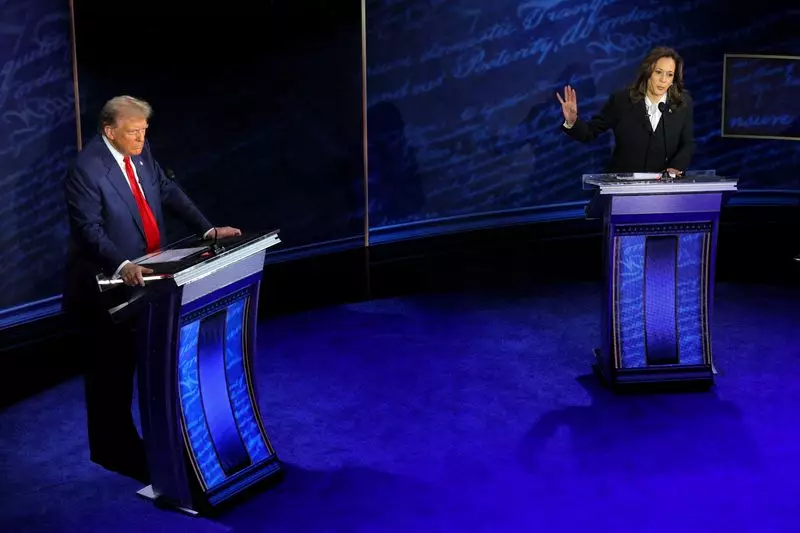As the date of the U.S. presidential election approaches, a notable sentiment among corporate financial officers highlights potential implications for the economy. A recent survey, jointly conducted by the Atlanta and Richmond Federal Reserve Banks and Duke University’s Fuqua School of Business, sheds light on how uncertainty surrounding the electoral process could result in firms delaying or curtailing their investment strategies. This article delves into these findings, unpacking the relationship between political events and corporate economic behavior.
The survey captured insights from 479 chief financial officers (CFOs) across the nation, revealing that approximately one-third of them had either postponed or reduced their investment plans due to uncertainties tied to the upcoming elections. Specifically, 21% of respondents acknowledged that uncertainty related to the electoral contests was a factor in their decision to delay investments, while 15% cited a scale-down of their plans. Taken together, this indicates that 30% of CFOs perceive election uncertainties as negatively impacting their investment strategies.
Interestingly, this survey did not draw partisan lines—neither did it indicate whether CFOs might prefer one candidate over another in terms of potential economic outcomes. Instead, the findings suggest a significant portion of businesses might be adopting a more cautious approach as they navigate through this politically charged climate.
Despite the cautious outlook expressed by some firms, it’s important to note that sentiment isn’t universally pessimistic among CFOs. The survey revealed that 69% of respondents remain optimistic about their individual companies, while 60% retain a positive outlook for the broader U.S. economy. This general optimism, akin to sentiments from previous months, coexists with the apprehension surrounding upcoming political developments.
However, the survey’s findings indicate that those firms most impacted by electoral uncertainties are often less optimistic about future growth. These companies tend to limit their investments, focusing primarily on cost-reduction strategies rather than expanding capacity or maintaining current assets. The shift in focus to equipment and structural investments for cost-cutting purposes reflects a broader trend where cautious financial planning takes precedence over growth ambitions.
CFOs articulated their concerns clearly during the survey, identifying regulatory policy as their dominant worry (60%), complemented by monetary policy (59%) and corporate tax policy (54%). This pattern reveals an underlying anxiety about how the election might influence these key areas, pointing to the fact that corporate decision-making is intricately connected to the political landscape.
Monetary policy concerns have been particularly relevant, especially in light of the Federal Reserve’s approach to adjusting interest rates amidst rising inflation. Although inflation has now fallen to lesser ranks in terms of CFO concerns, the legacy of high inflation and the subsequent tightening of monetary policy have left a lasting impression on corporate outlooks.
The dynamic interrelation between the electoral climate and corporate investment decisions cannot be overstated. As businesses confront considerable uncertainties related to upcoming elections, the potential for economic growth appears hampered, at least in the short term. CFOs’ concerns encapsulate a broader unease about the direction of regulatory frameworks, monetary policies, and taxation, which are all tightly interwoven with political developments.
While many CFOs maintain a level of optimism for their own operations and the economy at large, the hesitance of a significant minority to commit cash to investments suggests a cautious approach as they grapple with electoral uncertainties. Moving forward, it remains to be seen how the electoral outcome will shape corporate behaviors and economic recovery amidst an ever-evolving political landscape. The findings of this survey serve as a crucial reminder of the interconnectedness of politics and economic decision-making, reinforcing the importance of strategic planning in uncertain times.

